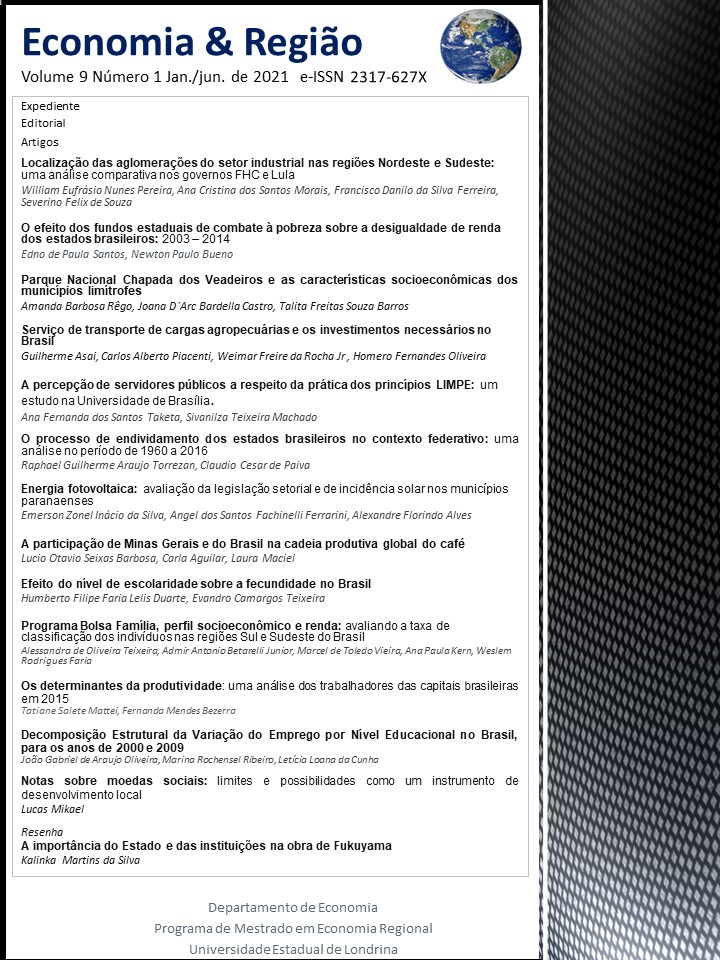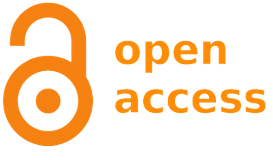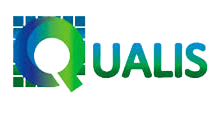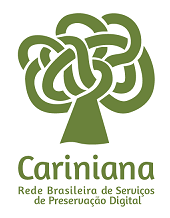Minas Gerais and Brazil in the Coffee Global Value Chain
DOI:
https://doi.org/10.5433/2317-627X.2021v9n1p147Keywords:
Coffee, Coffee Global Value Chain, UpgradeAbstract
This paper presents the insertion of Minas Gerais and Brazil in the Coffee Global Value Chain (CGVC). The analyses focus on 2017, exploring data from international and regional trade. To this end, it portrays its four dimensions: structure of production, in which traders play an important role; geography of demand and supply, pointing out that countries from South America and Asia exports mainly green coffee; governance, showing that coffee roasters controls the CGV; and the institutional context, revealing that Minas Gerais, which is the largest producer state in Brazil by far, exports mainly green coffee. In addition, small and medium farmers are responsible for the coffee production; the coffee roasting is highly concentrated in few industries; and public institutions help to spill over best growing techniques. The analyses of the CGVC shows that the value added in its first segments is low. Therefore, we identify opportunities to strengthen Minas Gerais position by assuming the roasting process and boosting the special coffee production.Downloads
References
AMARAL, Ana Maria Santana et al. A Influência Do Certifica Minas Café Nas Lavouras Cafeeiras de Alfenas de Minas Gerais. Coffe Science, v. 12, n. 1, p. 114–123, 2017. Disponível em: http://www.sbicafe.ufv.br/bitstream/handle/123456789/8268/Coffee%20Science_v12_n1_p114-123_2017.pdf?sequence=1&isAllowed=y. Acesso em: 9 dez. 2019.
BAMBER, Penny; GUINN, Andrew; GEREFFI, Gary. Burundi in the Coffee Global Value Chain.. [S.l.]: Duke University: Center on Globalization, Governance and Competitiveness, 2014.
BARHAM, Bradford L.; WEBER, Jeremy G. The Economic Sustainability of Certified Coffee: Recent Evidence from Mexico and Peru. World Development, v. 40, n. 6, p. 1269–1279, 1 jun. 2012. Disponível em:http://www.sciencedirect.com/science/article/pii/S0305750X11002890. Acesso em: 9 dez. 2019.
CCCMG -CENTRO DO COMÉRCIO DE CAFÉ DO ESTADO DE MINAS GERAIS. Relatório internacional de tendências do café., nº 9. UFLA: Centro de Inteligência em Mercado: UFLA: Centro de Inteligência em Mercado, 2017. Disponível em: http://cccmg.com.br/bureau-de-inteligencia-competitiva-do-cafe-divulga-relatorio-internacional-de-tendencias-do-cafe-v6-n9/. Acesso em: 10 dez. 2019.
FEUERSTEIN, Switgard. The Coffee Paradox: Global Markets, Commodity Trade and the Elusive Promise of Development. The World Economy, v. 30, n. 6, p. 1031–1032, 2007. Disponível em: https://onlinelibrary.wiley.com/doi/abs/10.1111/j.1467-9701.2007.01041_3.x. Acesso em: 9 dez. 2019.
FJP (FUNDAÇÃO JOÃO PINHEIRO). Produto Interno Bruto de Minas Gerais (PIB). Disponível em: http://fjp.mg.gov.br/index.php/produtos-e-servicos1/2745-produto-interno-bruto-de-minas-gerais-pib-2. Acesso em: 11 dez. 2019.
FURTADO, Celso. Formação econômica do Brasil. Tradução. Edição: 1 ed. São Paulo: Companhia das Letras, 2007.
GEREFFI, Gary; FERNANDEZ-STARK, Karina. Global Value Chain Analysis: A Primer (2nd Edition) | Global Value Chains.. [S.l.]: Duke University: Global Value Chains (GVC) Center, 2016. Disponível em: https://globalvaluechains.org/publication/global-value-chain-analysis-primer-2nd-edition. Acesso em: 9 dez. 2019.
GEREFFI, Gary; HUMPHREY, John; STURGEON, Timothy. The governance of global value chains. Review of International Political Economy, v. 12, n. 1, p. 78–104, fev. 2005Tradução.. Disponível em: http://www.tandfonline.com/doi/abs/10.1080/09692290500049805. Acesso em: 9 dez. 2019.
GOLDING, Kirsty; PEATTIE, Ken. In search of a golden blend: Perspectives on the marketing of fair trade coffee. Sustainable Development, v. 13, n. 3, p. 154–165, 2005. Disponível em: https://ideas.repec.org/a/wly/sustdv/v13y2005i3p154-165.html. Acesso em: 9 dez. 2019.
HUMPHREY, John; SCHMITZ, Hubert. How Does Insertion in Global Value Chains Affect Upgrading in Industrial Clusters? Regional Studies, v. 36, n. 9, p. 1017–1027, 1 dez. 2002. Disponível em: https://doi.org/10.1080/0034340022000022198. Acesso em: 9 dez. 2019.
IBGEa(Instituto Brasileiro de Geografia e Estatística). Tabela 6323: Pessoas de 14 Anos Ou Mais de Idade, Ocupadas Na Semana de Referência - Total, Coeficiente de Variação, Variações Percentuais e Absolutas Em Relação Aos Três Trimestres Móveis Anteriores e Ao Mesmo Trimestre Móvel Do Ano Anterior, e Média Anual - Por Grupamentos de Atividade No Trabalho Principal. Disponível em: https://sidra.ibge.gov.br/tabela/6323#resultado. Acesso em: 11 dez. 2019.
IBGEb(Instituto Brasileiro de Geografia e Estatística). Tabela 5457: Área Plantada Ou Destinada à Colheita, Área Colhida, Quantidade Produzida, Rendimento Médio e Valor Da Produção Das Lavouras Temporárias e Permanentes. Disponível em: https://sidra.ibge.gov.br/tabela/5457#resultado. Acesso em: 12 dez. 2019.
IBEVAR (Instituto Brasileiro de Executivos de Varejo e Mercado de Consumo). Ranking IBEVAR. 120 Maiores empresas do varejo brasileiro. São Paulo, 2019.
ICO (INTERNATIONAL COFFE ORGANIZATION). Historical Data on the Global Coffee Trade. Disponível em: http://www.ico.org/new_historical.asp?section=Statistics. Acesso em: 10 dez. 2019.
INTERNATIONAL TRADE CENTER (ITC). The Coffee Exporter’s Guide. Tradução. 3. ed. Suiça: Gênova, 2011.
KAPLINSKY, Raphael; FITTER, Robert. Technology and globalisation: Who gains when commodities are de-Commodified? International Journal of Technology and Globalisation, v. 1, n. 1, p. 5–28, 1 set. 2004. Disponível em: https://www.inderscienceonline.com/doi/abs/10.1504/IJTG.2004.004548. Acesso em: 9 dez. 2019.
EMATER - Empresa de Assistência Técnica e Extensão Rural do Estado de Minas Gerais. Balanço Social 2015. Emater-MG, 2015. Disponível em: http://www.emater.mg.gov.br/doc/site/AEmatermg/Balanco%20Social.pdf. Acesso em: 12 out. 2019.
BRASIL. Ministério da Agricultura, Pecuária e Abastecimento). Liberações de crédito destinadas a financiamentos ao amparo de recursos do Fundo de Defesa da Economia Cafeeira – FUNCAFÉ Ano base 2015. Disponível em: https://www.gov.br/agricultura/pt-br/assuntos/politica-agricola/cafe/arquivos/liberacoes-de-recursos-do-funcafe-ano-base-2015-posicao-31-12-2015.pdf. Acesso em: 12 out. 2019.
MELLO, Fernando Homem. Café brasileiro: não a um novo acordo internacional. Revista de Economia Política, v. 13, n. 4, p. 37-46, 1993. Disponível em: http://www.rep.org.br/PDF/52-3.PDF. Acesso em: 12 out. 2019.
MÉNDEZ, V. Ernesto et al. Effects of Fair Trade and organic certifications on small-scale coffee farmer households in Central America and Mexico. Renewable Agriculture and Food Systems, v. 25, n. 3, p. 236–251, 2010. Disponível em: https://www.cambridge.org/core/journals/renewable-agriculture-and-food-systems/article/effects-of-fair-trade-and-organic-certifications-on-smallscale-coffee-farmer-households-in-central-america-and-mexico/FD4FB2E6A77A23543DFA9CA0C4F70523. Acesso em: 9 dez. 2019.
MURRAY, Douglas L.; RAYNOLDS, Laura T.; TAYLOR, Peter L. The Future of Fair Trade Coffee: Dilemmas Facing Latin America’s Small-Scale Producers. Development in Practice, v. 16, n. 2, p. 179–192, 1 abr. 2006. Disponível em: https://doi.org/10.1080/09614520600562397. Acesso em: 9 dez. 2019.
PALHARES et al. Reposicionamento estratégico das indústrias processadoras de café do Brasil: Propostas para sistematização de políticas públicas e estratégias de negócio. Tradução. Brasil: Ministério do Desenvolvimento, Indústria e Comércio Exterior: André Sório, 2015. Disponível em: http://www.meritos.com.br/livros/144.php. Acesso em: 9 dez. 2019.
PONTE, Stefano. The “Latte Revolution”? Regulation, Markets and Consumption in the Global Coffee Chain. World Development, v. 30, n. 7, p. 1099–1122, 1 jul. 2002. Disponível em: http://www.sciencedirect.com/science/article/pii/S0305750X02000323. Acesso em: 9 dez. 2019.
RUBEN, Ruerd; FORT, Ricardo. The Impact of Fair Trade Certification for Coffee Farmers in Peru. World Development, v. 40, n. 3, p. 570–582, 1 mar. 2012. Disponível em: http://www.sciencedirect.com/science/article/pii/S0305750X11002051. Acesso em: 9 dez. 2019.
SPECIALITY COFFEE ASSOCIATION OF AMERICA. SCAA Protocols. Cupping Specialty Coffee. Long Beach: SCAA, 2009. 7 p.
SAES, Maria Sylvia Macchione; SPERS, Eduardo Eugênio. Percepção dos consumidores sobre os atributos de diferenciação do segmento rural: café no mercado interno. Organizações Rurais & Agroindustriais, v. 8, n. 3, p. 14, 2006.
SILVA, Analice Miranda; DUTRA, Mariana Borges de Lima. Avaliação de informações contidas em rótulos de café torrado e moído. Alimentos e Nutrição Araraquara, v. 22, n. 3, p. 449–454, 2011.
VALKILA, Joni; NYGREN, Anja. Impacts of Fair Trade certification on coffee farmers, cooperatives, and laborers in Nicaragua. Agriculture and Human Values, v. 27, n. 3, p. 321–333, 2010. Disponível em: https://doi.org/10.1007/s10460-009-9208-7. Acesso em: 9 dez. 2019.
VEGRO, Celso Luis Rodrigues et al. Restrições à exportação de café torrado e moído. Organizações Rurais & Agroindustriais, v. 7, n. 2, 2005. Disponível em: http://revista.dae.ufla.br/index.php/ora/article/view/202. Acesso em: 9 dez. 2019.
Downloads
Published
How to Cite
Issue
Section
License
Economia & Região adota a Licença Creative Commons Attribution CC-BY 4.0 International, portanto, os direitos autorais relativos aos artigos publicados são do(s) autor(es), que cedem à Revista Economia & Região o direito de exclusividade de primeira publicação.
Sob essa licença é possível: Compartilhar - copiar e redistribuir o material em qualquer suporte ou formato. Adaptar - remixar, transformar, e criar a partir do material, atribuindo o devido crédito e prover um link para a licença e indicar se mudanças foram feitas.














